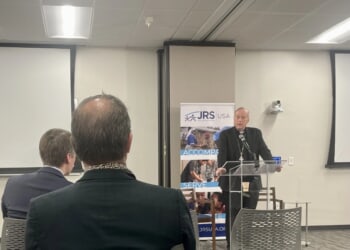I.
Anthropologists call it schismogenesis — the process by which one group’s behavior elicits a contrasting response from the other, producing a feedback loop of social differentiation. Left unchecked, schismogenesis will eventually result in discrete cultural antitypes, the likes of which regularly appear in the historical record. The Peloponnesian War provides a paradigmatic example, with the cosmopolitan, pleasure-seeking, democratic, mercantile, seafaring Athenians defining themselves in opposition to the parochial, austere, oligarchic, agrarian, landlubbing Spartans and vice versa. The cultural anthropologist Marshall Sahlins, in Apologies to Thucydides (2004), described an eerily similar dynamic that developed during the 19th-century conflicts between the Fijian kingdoms of Bau and Rewa, while the Cold War, with its oppositional logic and mutually-escalating arms race, provides a more recent and relevant example. And we might add the case of democratic, westward-oriented Ukraine, which has increasingly defined itself in opposition to its despotic Russian neighbor.
Closer to home, we see this playing out in the context of American oppositional politics. Domestic politics has become a matter of mutual aggravation and repellence. If the right is pro-life, the left will gravitate towards unrestricted access to abortion. If the left has fallen prey to woke ideology, then someone like Andrew Tate (of all people) can become an icon for many on the right. First Thing’s Jonathon von Maren has called this “reactive gullibility and fact-free contrarianism,” which is true as far as it goes, but this is really just a function of hyperpolarization. You do not need to agree with every claim made in Joshua Strayhorn’s recent American Journal of Political Science article “Making the other side mad: How out-group distaste benefits less competent candidates” to accept the basic premise that an “environment of polarization and negative partisanship” tends to lead voters to make d…
The Perils of Oppositional Politics – The American Spectator | USA News and PoliticsThe American Spectator
Related Posts
Rafe Fletcher: On Ukraine, Washington is forgetting the difference between realism and relativism
Rafe Fletcher is the founder of CWG Speakers. Safely removed from the horrors of…
Sen. Chuck Grassley Shows GOPers the Proper Way to Greet Screeching Paid Agitators at Town Halls – Twitchy
As you've no doubt seen by now, the media and Democrats have been…
‘What the hell was that?’ Top Kamala campaign aide dumps on Dem’s major mistake on ‘The View’
With books on the disastrous Biden presidency just beginning to roll out,…
Trump’s Admin Guts Another ‘Rogue Government Agency with Zero Accountability’ [WATCH]
The Trump administration carried out a sweeping move on Friday, firing nearly…
Chuck Schumer’s Softball ‘The View’ Interview Produces Home Run GOP Midterm Ad
Wall Street Chuck accidentally gave Republicans a home-run GOP midterm ad…
THIS! Sen. John Kennedy Throws YUGE Wrench Into Fed. District Courts Trying to BLOCK Trump Admin (Watch) – Twitchy
Senator John Kennedy is a national treasure—true story. There is just…
Top Aide Finally Admits Biden Was Rapidly Declining, Falling Asleep By The Pool
One of former President Joe Biden’s senior aides admitted in a new book that the…
‘We All Owe Him (Elon) a Huge Debt of Gratitude’ [WATCH]
Golf legend Phil Mickelson has voiced his support for Elon Musk and the…
The Plot Thickens! New York Times Reports Corrupt Lefty Fundraising Org ActBlue Is In ‘Turmoil’ – Twitchy
We've told you about the troubles Left-wing fundraising site ActBlue…
NCAA Champ Salutes President Trump After ‘BIGGEST UPSET IN COLLEGE WRESTLING HISTORY’ [WATCH]
Oklahoma State heavyweight wrestler Wyatt Hendrickson pulled off a major upset…





![Trump's Admin Guts Another ‘Rogue Government Agency with Zero Accountability’ [WATCH]](https://www.right2024.com/wp-content/uploads/2025/03/Trumps-Admin-Guts-Another-‘Rogue-Government-Agency-with-Zero-Accountability-350x250.jpg)



![‘We All Owe Him (Elon) a Huge Debt of Gratitude’ [WATCH]](https://www.right2024.com/wp-content/uploads/2025/03/‘We-All-Owe-Him-Elon-a-Huge-Debt-of-Gratitude-350x250.jpg)

![NCAA Champ Salutes President Trump After ‘BIGGEST UPSET IN COLLEGE WRESTLING HISTORY’ [WATCH]](https://www.right2024.com/wp-content/uploads/2025/03/NCAA-Champ-Salutes-President-Trump-After-‘BIGGEST-UPSET-IN-COLLEGE-350x250.jpg)





